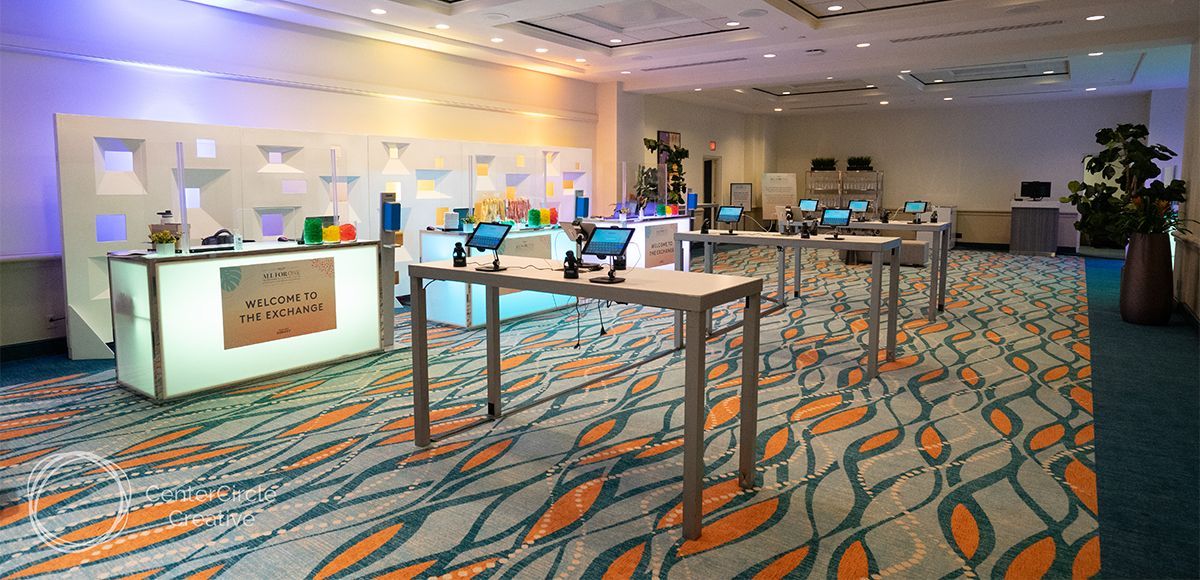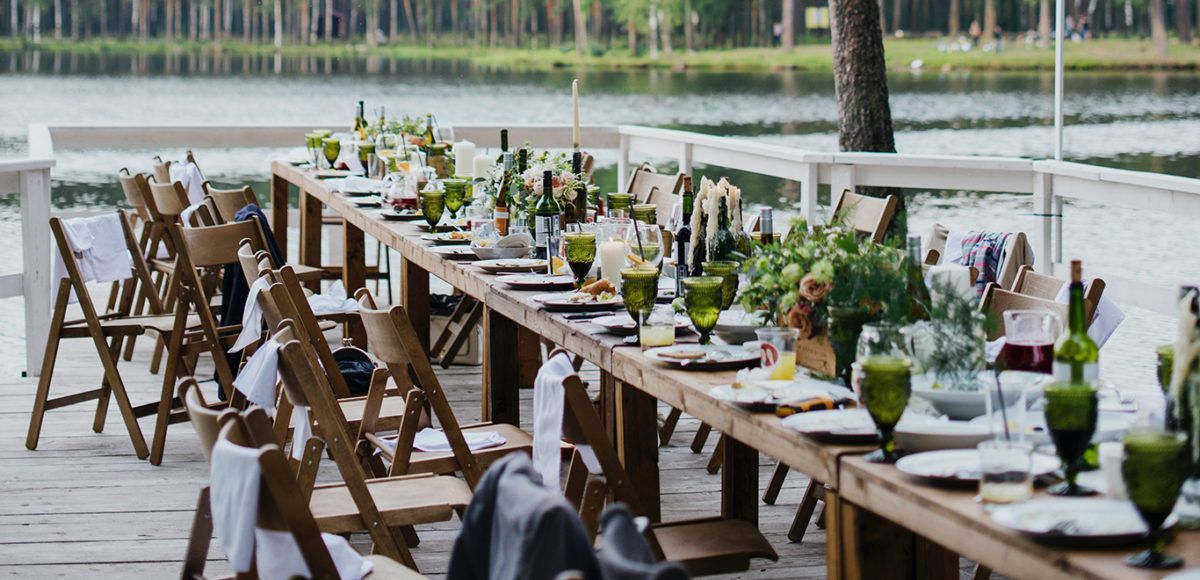These days, “sustainability” is more than just a buzzword. It’s a way of life for people across the globe. According to the United States Environmental Protection Agency, sustainability is “based on a simple principle: Everything that we need for our survival and well-being depends, either directly or indirectly, on our natural environment. To pursue sustainability is to create and maintain the conditions under which humans and nature can exist in productive harmony to support present and future generations.”
Sustainability is a trend that millennials and Generation Z have embraced as well. “Gen Zs and millennials believe that urgent action is needed to address climate change. They are doing their part to reduce their personal environmental impact, and they want businesses and governments to do more. Businesses have a need and an opportunity to provide more sustainable products and services,” reports a 2022 survey from Deloitte.
The benefits of sustainable event planning include reducing costs, decreasing environmental impact, and meeting or exceeding stakeholder expectations. The problem with talking the talk on sustainability is that you have to walk the walk as well, which can be difficult when it comes to events. Events have a high environmental impact, which means that you have to get creative when planning your event if you want to demonstrate that you care about the planet.
If that sounds like a tall order, don’t worry. Achieving a sustainable event isn’t an insurmountable task. In this article, we’re going to look at what a sustainable event means and offer some practical tips on how to make it happen.
Consider Choosing an Eco-Friendly Venue
One of the most prominent symbols of your event is the venue where it takes place. So if you’re aiming for sustainability, the venue and location of your event should reflect that value. You can start by hosting your event in a sustainable city. If choosing a location is out of the picture or if the city is predetermined, make sure your venue is Leadership in Energy and Environmental Design (LEED)-certified.
The U.S. Green Building Council points out that “LEED-certified buildings save money, improve efficiency, lower carbon emissions, and create healthier places for people. They are a critical part of addressing climate change and meeting environmental, social, and governance (ESG) goals, enhancing resilience, and supporting more equitable communities. To achieve LEED certification, a project earns points by adhering to prerequisites and credits that address carbon, energy, water, waste, transportation, materials, health, and indoor environmental quality.”
In addition to LEED certifications, you can ask about other factors that help lessen the environmental impact of your event. Does the venue have any other green certifications or partnerships? Is the venue in a walkable area or close to public transportation or ride-sharing options? Does the venue use sustainable materials? How does the venue handle waste management, food waste, and recycling? Answers to these questions will help determine the environmental impact of your event.
Rent Furniture and Decor
Furniture rental isn’t just a way to save money by not purchasing what you don’t need; it’s also a way to demonstrate genuine sustainability. Renting furniture and decor ensures that your event isn’t contributing to landfill waste or unnecessary storage of materials for an extended period of time with no use ― and it’s easier than ever.
“Choosing décor that is upcycled or rented is far more accessible today than it’s ever been. Rental companies are prepared to loan out their furniture or other items to be used again and again, oftentimes styled or reworked to fit your event,” writes Stacy Flannery at The Vendry.
Renting allows you to customize furniture and decor to fit the needs and theme of your event. Choosing sustainable vendors is also important when planning your event, so seek to ensure that where you are getting event materials is committed to sustainable practices.
CORT Events is committed to sustainability in multiple ways. CORT optimizes its delivery process to achieve efficiency in delivery and lower fuel use and emissions. It puts the latest in green technology to use in its products and facilities, and it seeks to reduce its use of plastic and overall waste.
Take Advantage of Digital Tools and Technology
Technology has made our lives easier in so many ways, and it can help you reduce waste at a large-scale event. You can leverage digital tools for event invitations, registration, agendas, schedules, and so much more.
“Digital document-signing tools and apps, such as DocuSign and eversign, can allow for crucial paperwork to be reviewed and signed without a form ever having to be printed. Social media platforms, such as Facebook, Twitter, and Instagram, are also effective methods of reaching a digital audience, instead of relying solely on the distribution of printed materials,” suggests the University of Central Florida.
It’s possible to create an entirely paperless event by using digital platforms, but be careful not to go overboard with innovation. Familiarity and consistency can help you not frustrate your attendees and event staff. You can make communication easy with an app for event information and quick response (QR) codes in convenient locations. These digital tools will help your eventgoers know what to expect as they explore different event parts and need to gather information.
Consider Waste and Waste Management
Reducing waste may sound like a no-brainer when it comes to sustainability, but it requires a lot of thoughtful planning to ensure that your event isn’t contributing to landfills.
The availability of reusable materials can present challenges. If reusable drinkware and dishware are not an option, go with biodegradable cups, plates, and napkins. UCF suggests that “For larger events that may be attended by a wide audience, organizations, such as Eco-Products and Green Paper Products offer environmentally friendly plates, cups, containers and more.”
Providing recycling, compost, and landfill bins throughout the event supports attendees in taking an active role in their carbon footprint. Make sure that those bins are marked clearly and easily accessible so that the right items wind up in the right place.
The freebies that you give out to attendees can make a big difference as well. Rethink the idea of giving out branded “swag” that people will use once or twice and then throw away.
“Time to ditch the plastic-y swag bags of yore for something more sustainable. There are oodles of companies out there that now offer recycled, Earth-friendly options. Consider gifting your employee, customers, or clients with a reusable grocery bag, perhaps outfitted with a reusable drinking straw, a recycled notebook, bamboo sunglasses, or a T-shirt made of recycled material. Another new and popular option is digital swag, which requires no bag or paper. Attendees can open a virtual ‘bag’ that is emailed to them with discount codes, e-tickets, or access to other freebies, all with no waste,” writes Flannery.
Support Local
Partnering with local vendors is another way to achieve sustainability, along with other exciting benefits.
“When it comes to sourcing what you need for your event, try to do so as locally as possible to cut down on transportation. This also has the added bonus of supporting your local community,” the blog team at Eventbrite points out.
One of the easiest ways to support local vendors is in your food and menu choices. Look for local vendors that source local ingredients and in-season foods. Not only will this ensure the best, most delicious items, but it will also mean you’re opting for sustainable food that reduces transportation costs and environmental impact. Provide menus and ordering options ahead of time for attendees to ensure a more realistic food order.
Local vendors also provide jobs within the community, which adds an economic benefit to sustainability, and gives you the option for vibrant, unique options from within the community.
Plan with Sustainability in Mind
Pulling off a sustainable event isn’t impossible, but it does take intentional planning well ahead of the event. Choosing a venue that prioritizes sustainability, renting rather than purchasing items for your event, leveraging technology, and focusing on local vendors all help make reducing the environmental impact of your event a reality.
If you’ve never considered sustainability for your next event, start small. Choose one initiative to focus on and build from there. Having the right partner for your event planning helps as well, and CORT Events is the perfect team to have on your side.
CORT also has planning tools that can help you maximize the influence of your event while minimizing your environmental impact. And, best of all, they make planning and executing your event easier and more stress-free. Count on CORT Events for your next sustainable event planning.











